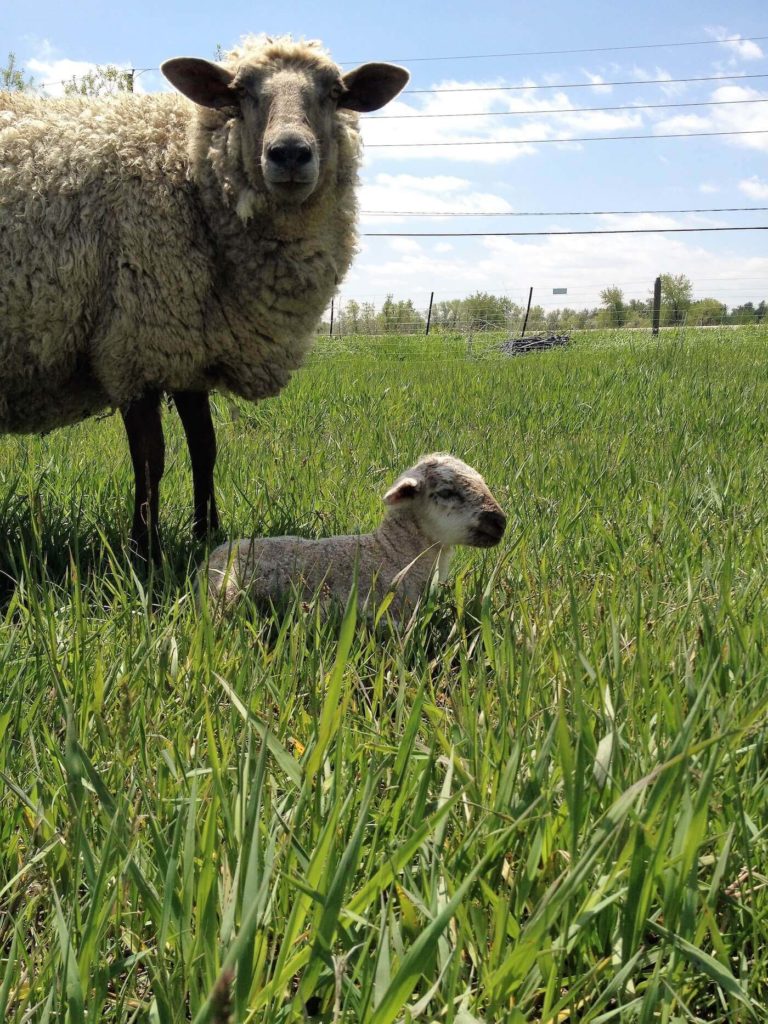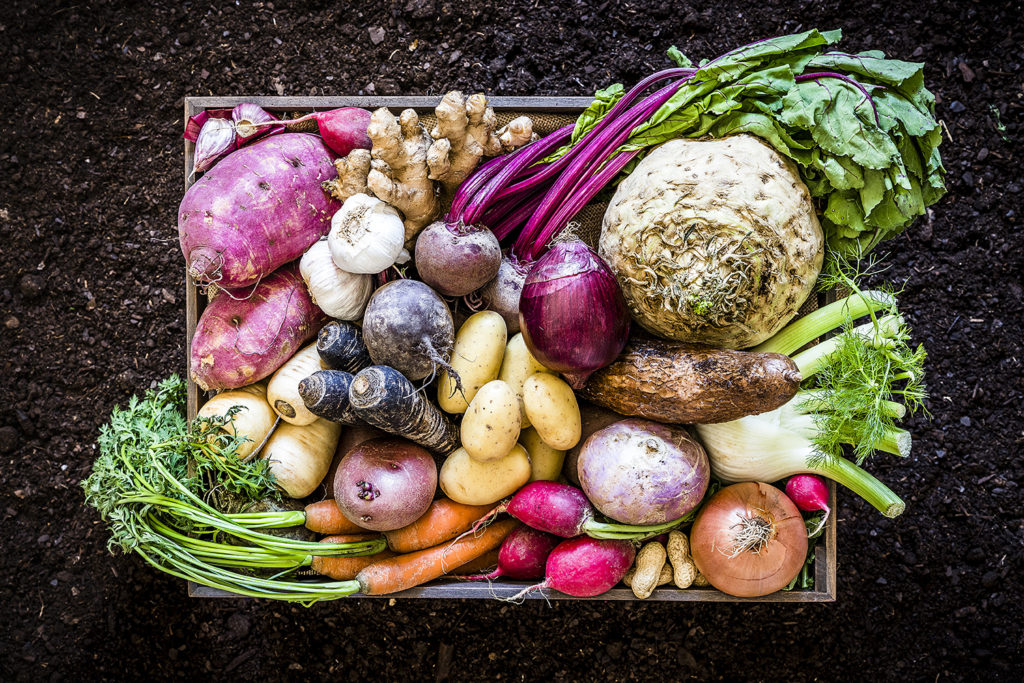Earth Day is a time for us all to reflect on our relationship with the planet, and to assess how we can improve our impact on the ecosystem around us.
Cooks, chefs, and the food industry overall can be major players in the push for more sustainable food production. Today we’re chatting with two Chef Instructors who have made farms and sustainability major parts of their careers and teaching style at Auguste Escoffier School of Culinary Arts.
Meet Two of Escoffier’s Sustainability-Focused Chef Instructors
Chef Instructor Stephanie Michalak
Chef Stephanie has had plants in her hands since she was little. Her grandparents grew and sold raspberries and pussywillows, and she has fond memories of the taste of raspberries right off the bush.
During a 6-month stint working on an organic farm and cooking in their volunteer kitchen as a teen, she developed an interest in food policy — how food is produced, processed, and distributed. This also led her to going vegan, a lifestyle she maintained for 10 years.
“I really wanted my career in food to be about connecting people to farms,” Chef Stephanie says. “I think a lot of us don’t always acknowledge where that food is coming from, who has produced it, and the many, many hands that have grasped the food that we are then eating. So that was something that I really loved about that [farm] experience.”
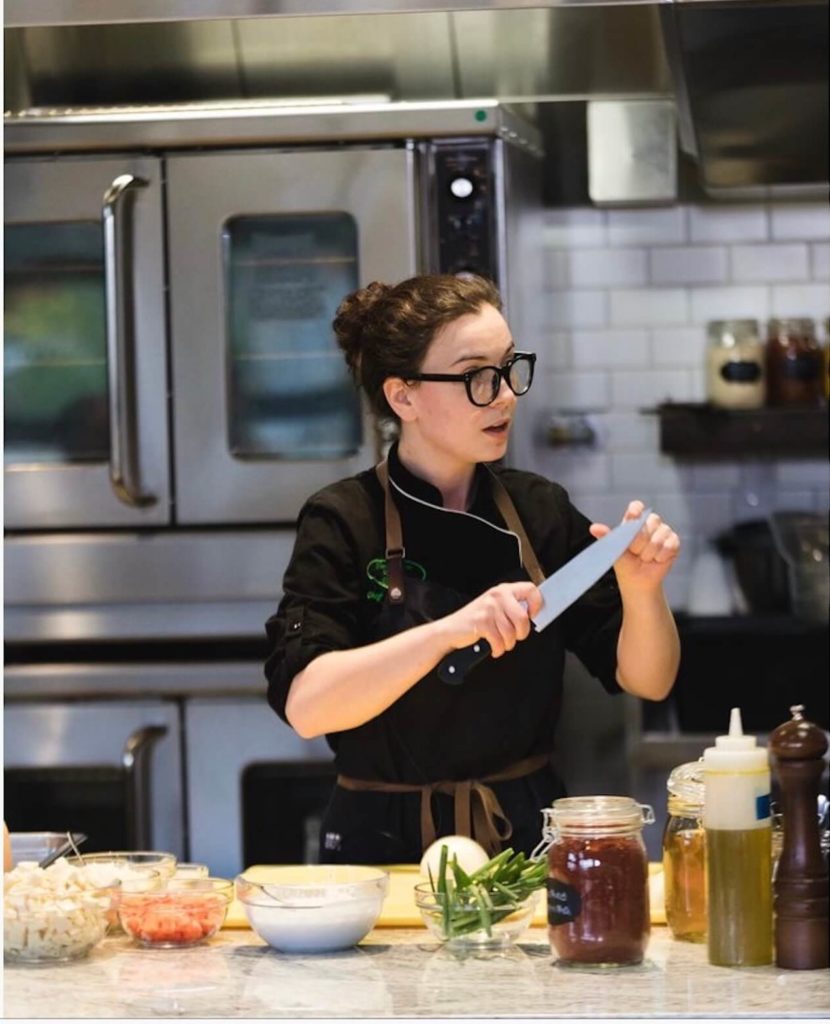
Escoffier Chef Instructor Stephanie Michalak White doing a cooking demo
After the farm, she decided that college wasn’t for her and attended culinary school instead. This led to several years working at farm-to-table restaurants. And, as a lifelong learner, she has continued with additional education. Chef Stephanie has a master’s degree in food studies, and she’s currently working on her doctorate in higher education leadership, focusing on food insecurity in higher education institutions.
“Being a ‘starving student’ is something that we can all relate to,” she says. “But why do we relate to that? Why is that something that’s normalized? Eating ramen for four years is probably not going to help us ace those exams. [Food insecurity in higher education] impacts individuals, but it also impacts their ability to connect with not just their studies, but whatever else they have going on.”
Chef Stephanie brings her passion for fresh food, sustainability, and education together in her work at Escoffier, where she teaches and supervises as a Lead Chef Instructor.
Chef Instructor Jon Todd
Like Chef Stephanie, Chef Jon has experienced both the restaurant side and the farm side of the food industry. He’s worked at a number of independent farm-to-table restaurants, and he spent six months working on a farm in Hawaii through a World Wide Opportunities on Organic Farms program (WWOOF). Through these programs, members commit to a certain number of hours per week working on a farm, in exchange for meals and a room.
“So much of being in a restaurant is seeing boxes of produce show up at your back door,” Chef Jon says, “and not really knowing anything about where it came from. So I wanted to get a bit more into the full spectrum of how the food gets from the farm to the actual restaurant to in front of a customer.”
He also worked at a whole animal butcher shop, where he gained a new appreciation for the animal behind the meat.
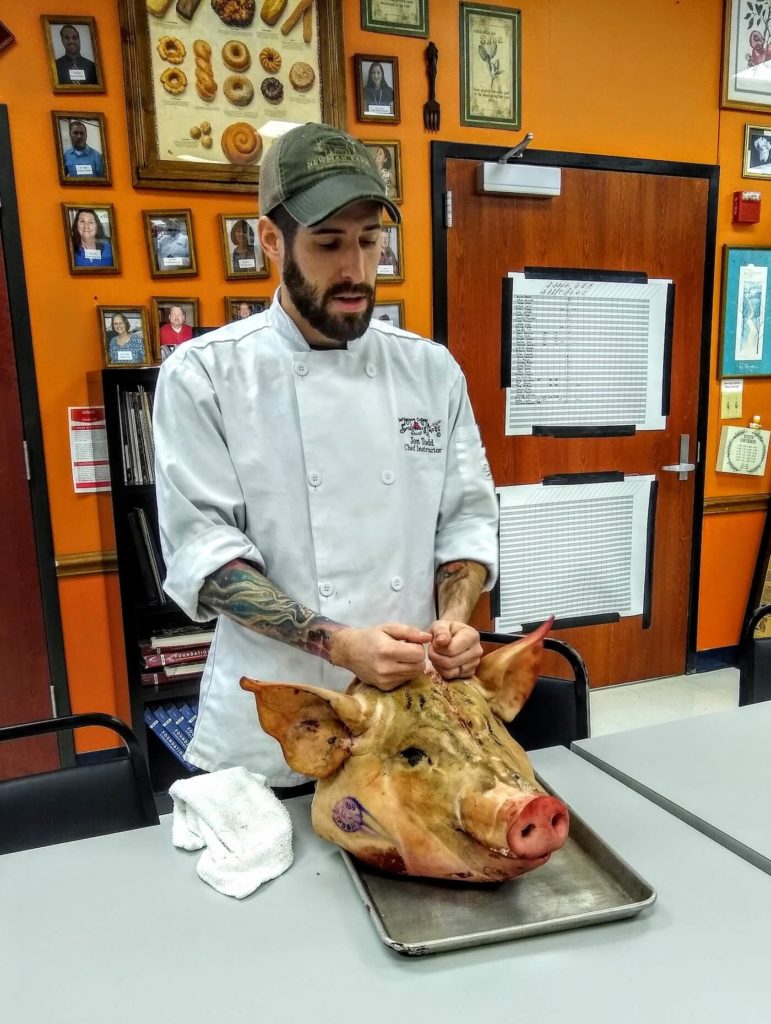
Escoffier Chef Instructor Jon Todd giving a lecture
“We would get one whole cow, three pigs, and about 80 chickens a week. So you would have people coming into our shop and say ‘I’d like two tenderloins.’ But we’d only get one cow, and there are only two tenderloins on it, so we’d be out. It was an awesome experience to help educate the average consumer that meat doesn’t come wrapped in styrofoam. It comes off of an animal.”
As an Escoffier Chef Instructor, Chef Jon teaches a variety of classes, but he always keeps sustainability in mind.
“There are a lot of culinary schools that don’t even mention farm-to-table or sustainability practices. They don’t get into the farming. And so I think the fact that we have [the Farm to Table® Experience], and we have so many instructors who actually care about it is really important to the students.”
Escoffier Chef Instructor Jon Todd
How Does Sustainability Play a Role at Escoffier?
Sustainability is woven throughout several parts of the Escoffier curriculum, but it gets the most focus in the Farm to Table® Experience. This 6-week block is all about building an appreciation for the way our food is created before it reaches the kitchen door.
On-campus students in Boulder, Colorado, and Austin, Texas, spend one day per week during this course on a local farm or with a maker of products like cheese or beer. They get to work alongside the farmer or artisan, seeing first hand the hard work that goes into raising a cow, harvesting and fermenting grains, or turning milk into cheese.
Online culinary students explore the same topics and have the opportunity to participate in weekend workshops to get hands-on experience as well. Plus, Escoffier occasionally invites farmers like Lee Jones of The Chef’s Garden to chat with students and faculty about their own experience.
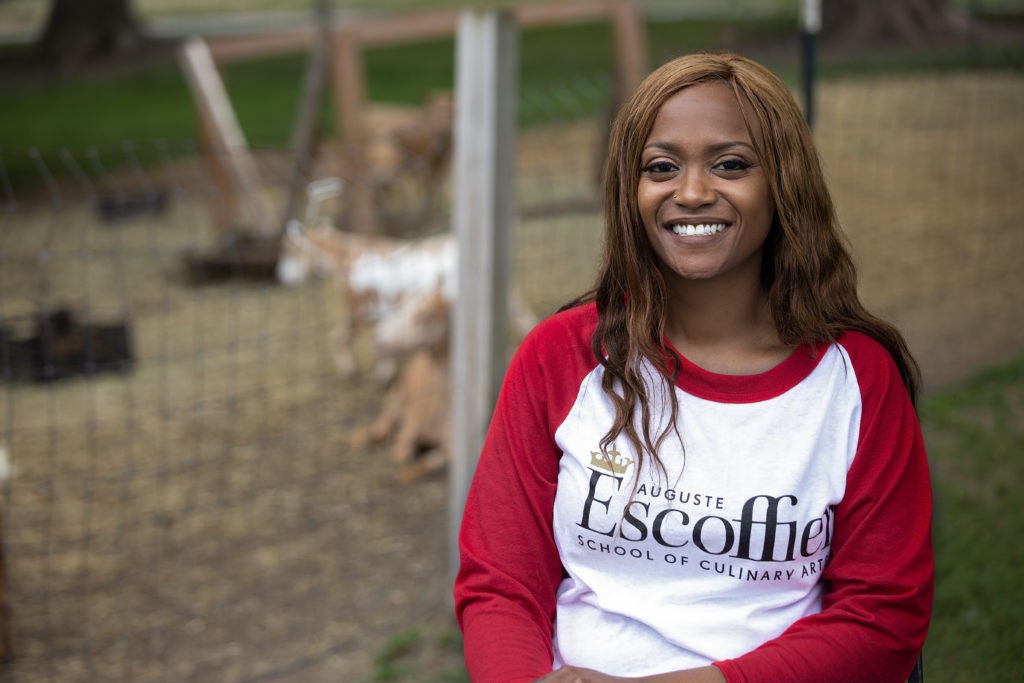
Escoffier Online Graduate Tiffany Moore at a weekend workshop
Sustainable practices are explored in other courses as well. Preventing food waste is often discussed as a cost savings measure, but it’s also an important component in sustainability.
“I think [discussing food waste is] a really great way that we’re able to connect with students that may have not thought about sustainability from an environmental perspective. It does affect your bottom line, too.”
Escoffier Lead Chef Instructor Stephanie Michalak
Then there’s the need to understand seasonality for where you live.
“Everybody has a different season,” says Chef Stephanie. “Some tomatoes could be produced somewhere right now, but in Northern Kentucky where I’m living, we will not have tomatoes until late May at best, and it’s a very short window. So I think we do a really good job in our curriculum, particularly in Farm To Table®, where we really try to help the students understand what to do about in-season produce. How do you preserve that? Do you ferment it? How do you go about instilling that into your own cooking?”
Chef Jon adds that Escoffier’s online programs are another way the school contributes to a “green” culture, outside of the curriculum. With students and teachers interacting remotely, knowledge can be passed on with a low carbon footprint since there’s no need to commute to a campus.
How Does Shopping Sustainably Help the Earth?
Supporting local farmers does more than just reduce the carbon footprint necessary to get food from the farm to our homes. The growing process itself can cause less damage to the environment when it’s approached sustainably.
Regenerative farming practices use natural methods to keep soil, crops, and animals healthy. One technique is crop diversity, rotating what gets planted in each field to prevent depleting the soil of its nutrients. These practices can also put the animals to work. Pasturing goats and sheep, for example, lets them nibble on tasty weeds and prevents the need for chemical weed killers. And chicken waste is high in nitrogen, which can help replenish soil.
By shopping with farmers who employ these practices, you vote with your dollars and tell other farmers that sustainability and eco-friendly farming has a market. Plus, it helps the people that grow our food to build thriving businesses and improve their quality of life.
How Is a Focus on Sustainability Shaping the Way We Eat and Buy Food?
Chef Stephanie has observed that people are much more conscientious than they used to be about how their food affects their health. And with the COVID-19 pandemic, she doesn’t see that trend changing anytime soon.
“I know a lot of people have felt like they really needed to understand their food better, because it was something they could control,” she says.
We’re also seeing more transparency, both at the restaurant and at the grocery store. As consumers have expressed more interest in knowing where their food comes from, retailers and restaurants use the names of local farms as a selling point to prove quality and sustainability.
“I don’t think 15 years ago there were many restaurants that would put up a chalkboard of all the farms that they bought their ingredients from. But we see that a lot more frequently nowadays.”
Escoffier Lead Chef Instructor Stephanie Michalak
“It’s becoming financially beneficial for a lot of these establishments,” says Chef Jon. “The mom-and-pop people have been doing it for a while, but now you’re starting to see a lot more of these larger chains take it on because more people are leaning towards sustainability, as we start to see the effects of climate change.”
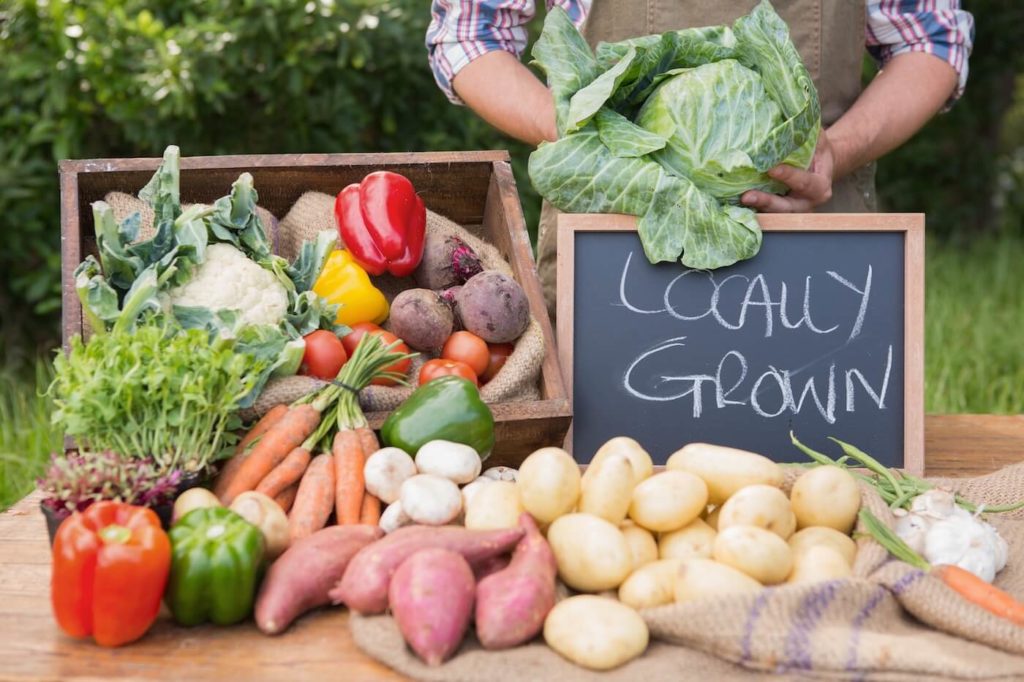
On the Individual Level, How Can We Help?
Chef Stephanie and Chef Jon agree — shopping local is a big way to create change.
“The most important thing is to do your own research and focus on where you’re buying your food,” says Chef Stephanie. “It does take a lot of effort and energy to reach out to local farms, but going to a local farmer’s market is easier.”
You can also sign up for a Community Supported Agriculture (CSA) membership. This method lets you prepay for a box of produce to either pick up or get delivered on a regular schedule. It helps the farm manage their cash flow, and gives you a steady supply of local fruits or veggies.
Some local farms and ranches also offer “cow shares.” You can buy a portion of a cow, and take home humanely raised and locally processed beef! You may get some cuts you’re unfamiliar with, so be prepared to get creative. (And make sure you have plenty of freezer space.)
When shopping at local butcher shops, Chef Jon recommends doing some research.
“A lot of butcher shops get their animals from the same place the grocery store does. They just package it a little differently. So make sure that they’re using local animals.”
Escoffier Chef Instructor Jon Todd
Chef Stephanie also reminds us that our food doesn’t necessarily have to be Certified Organic to be sustainable. “There are a lot of farms that can’t afford organic licensing that are just as good, if not better. You just have to ask that farmer what their practices are, so that you have a deeper understanding of what’s going on there.”
Both Chef Jon and Chef Stephanie remind us that it’s okay to start small. You don’t have to replace everything in your diet with locally-sourced food. Just shopping at a local butcher or visiting the farmer’s market once per week can be a huge help. Or plant a few of your own veggies!
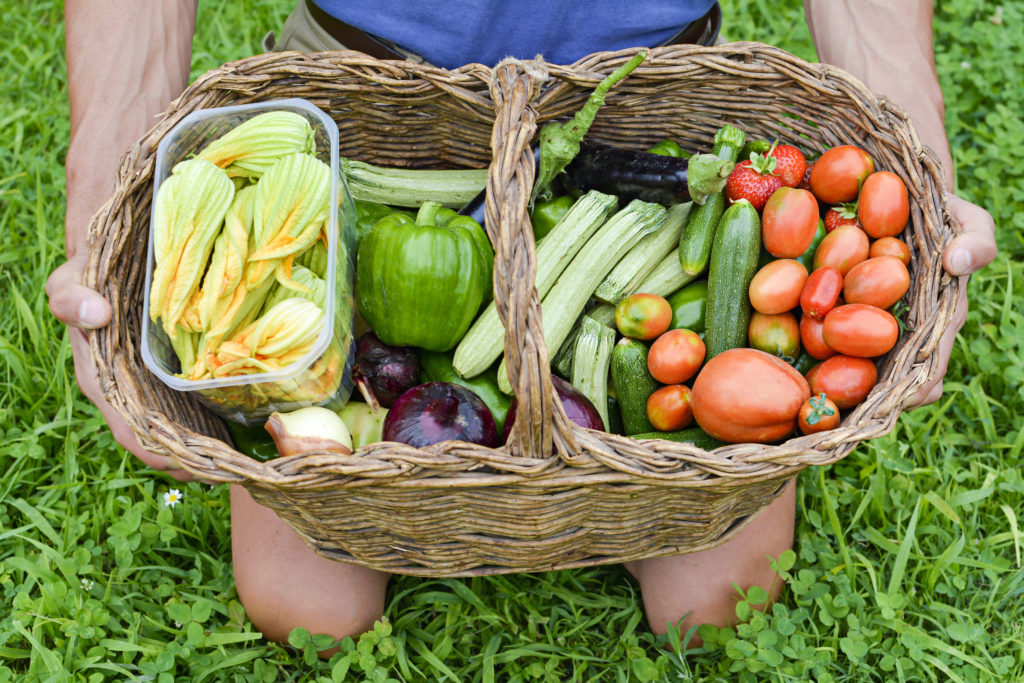
Carry Earth Day Throughout Your Career
As a culinarian, you will have the potential to have a positive impact on the earth. If you use your talents in a restaurant or hotel kitchen, you can choose to purchase local meat or produce for your food. A foodie influencer or writer can highlight issues of sustainability through their content. A cottage food business owner can preserve seasonal produce in the form of jams or pickles to sell.
Whatever your path, a culinary education that highlights sustainability can help you to be a positive force for global change. In addition to our culinary arts degrees and diplomas, we also offer programs focused on plant-based culinary arts and holistic nutrition and wellness.
To learn more about sustainability in the kitchen, try these resources:

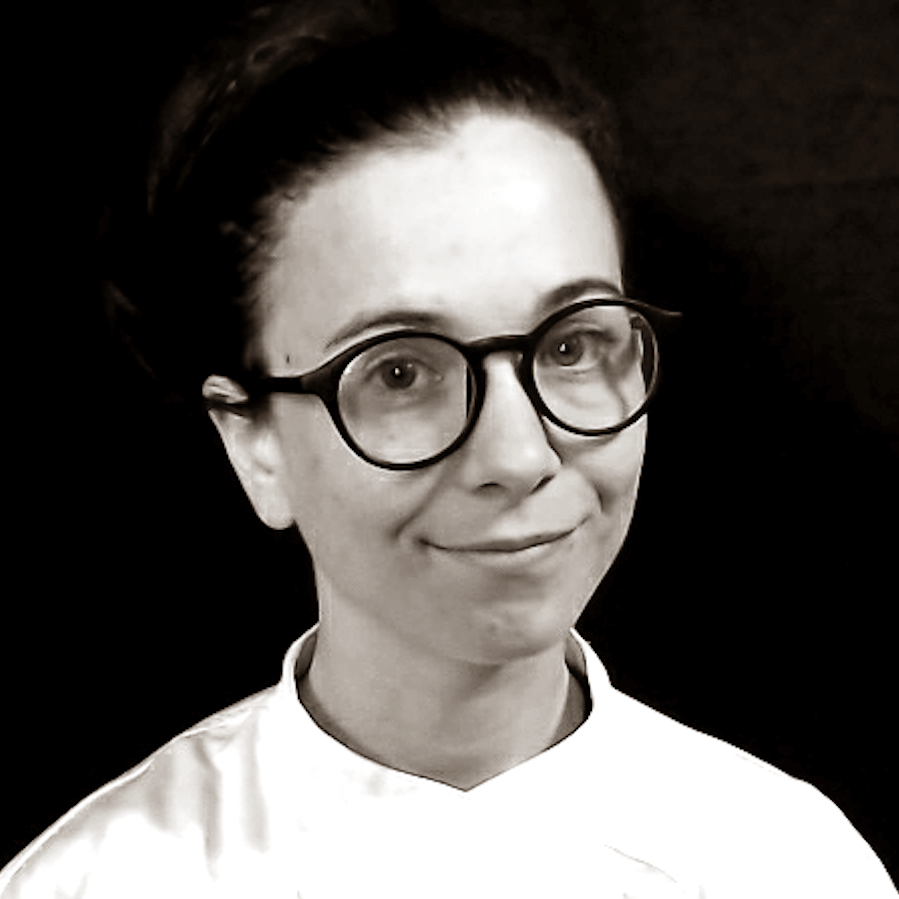 “I think [discussing food waste is] a really great way that we’re able to connect with students that may have not thought about sustainability from an environmental perspective. It does affect your bottom line, too.”
“I think [discussing food waste is] a really great way that we’re able to connect with students that may have not thought about sustainability from an environmental perspective. It does affect your bottom line, too.”